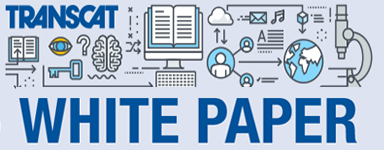Laboratory accreditation is the formal recognition of an organization’s technical competency to perform specific or types of tests or calibrations.
Accreditation is given only to those laboratories that can demonstrate an initial and on-going competence in their field of testing or calibration, and that conform to the requirements of ISO/IEC 17025: General Requirements for the Competence of Testing and Calibration Laboratories. Accreditation to ISO/IEC 17025 requires that the laboratory meets the management and technical systems requirements of the standard, that the laboratory has adequate equipment to perform the tests or calibrations, and that the laboratory facility has adequate personnel with the technical competence to perform the tests or calibrations.
The assessors used to conduct the laboratory accreditation assessments, both initially and on-going, are technical experts in their fields. The assessors verify the laboratory’s specific capabilities listed on the scope of accreditation. Accreditation is maintained by participation in proficiency testing on a regular basis to demonstrate the technical competence, and through regular full technical assessments, usually every two years. See the example of a Certificate of Accreditation for an accredited laboratory.
How is Laboratory Accreditation Different from Quality Systems Registration or Certification?
Quality systems registration or certification is the process of verifying, usually by an independent third party, that the organization’s documented quality management systems are operated in accordance with the requirements of a specific industry standard. Such specific standards include ISO 9001:2000 for quality systems and ISO 14001 for environmental systems. The evaluation process does not normally assess for technical competency. The Certificate of Registration does not include a Scope of Accreditation.
Why Laboratory Accreditation?
If calibration services are outsourced to a commercial/independent supplier of calibration services, a decision must be made whether fully accredited calibration services are wanted and needed. Some industry quality standards, such as ISO/TS 16949 - Quality Systems Automotive Suppliers, the new international standard in the automotive industry, requires that where commercial/independent laboratory facilities are used for inspection, test or calibration services, the supplier shall be accredited to ISO/IEC 17025 or national equivalent. Some suppliers of calibration services may require a premium service charge for calibration services that are accredited.
What is the Scope of Accreditation?
The scope of accreditation is a formal document that lists the types of calibrations that the laboratory is accredited to perform. The content of the scope of accreditation is verified during the assessment, is approved by the assessing body, and is continually verified through proficiency testing. For calibration laboratories, the scope of accreditation normally includes the parameters, the ranges of measurement, the best measurement uncertainty associated with each range, and the techniques and equipment used to perform the calibrations.
It is very important to note that the scopes of accreditation do not always include all the laboratory’s capabilities, either because the laboratory may request to limit the scope of accreditation for cost or technical reasons, or because the assessing body has not been able to affirm the laboratory’s technical competency in all areas. Capabilities not listed on the scope of accreditation are not covered by the accreditation. See the example of the Scope of Accreditation from an accredited laboratory.
How is Laboratory Accreditation Documented?
Upon successful completion of the management systems, technical systems and technical competency evaluations, the laboratory is issued a Certificate of Accreditation by the assessing body. The Certificate defines the standards of compliance, such as ISO/IEC 17025 and ISO 9001, and lists the specific area of services, such as calibration or non-destructive testing laboratory. The assessing body also issues a Scope of Accreditation document, which may be several pages long. The Certificate of Accreditation and Scope of Accreditation have defined expiration limits, usually every two years. During the two-year period, the laboratory must continue to demonstrate compliance to the management and technical quality systems, and technical competency. The accredited laboratory is permitted to use the logo of the accrediting body in an advertisement, product literature, and calibration reports and certificates.



